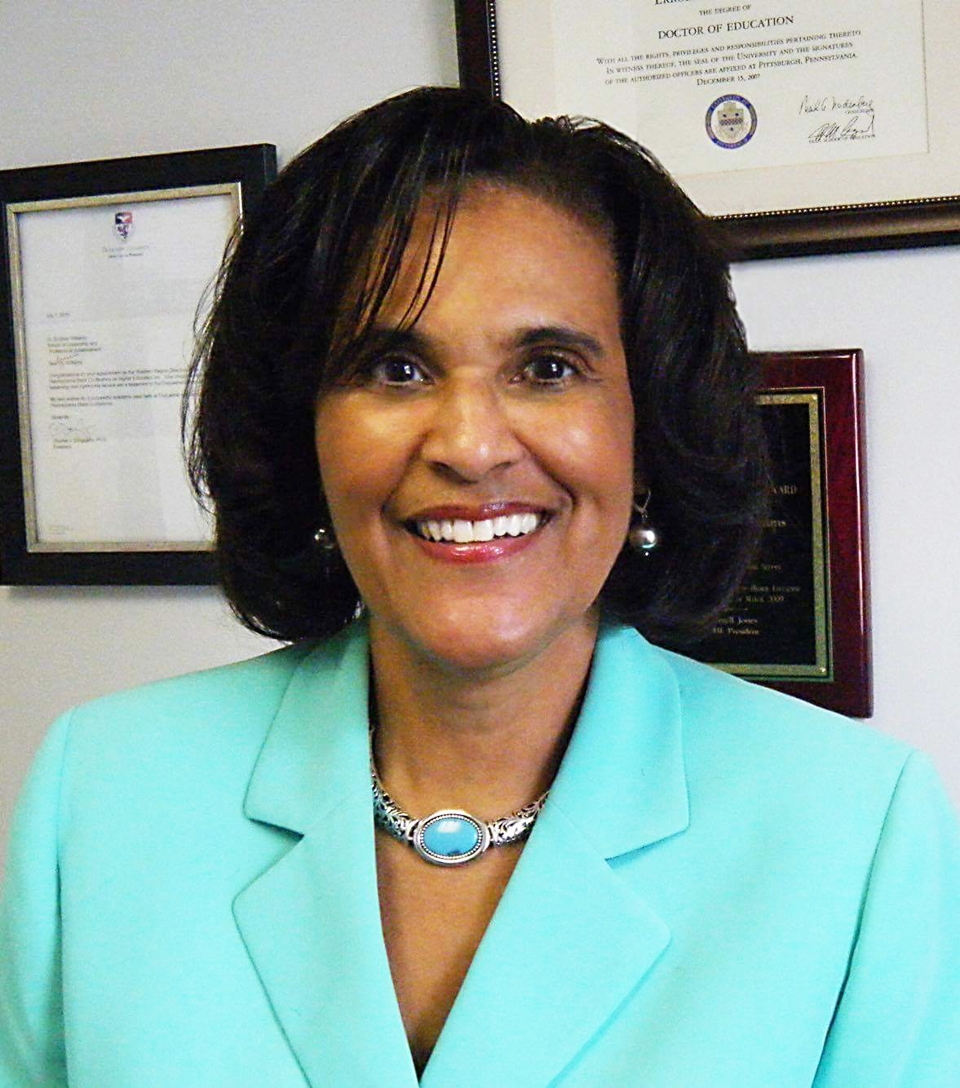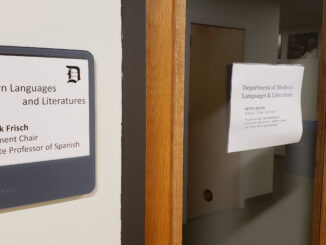
Kellen Stepler | features editor
Sept. 23, 2021
Typically when a bridge opens, drivers and travelers of an area rejoice; and the new Bridges Curriculum launch at Duquesne has some students feeling the same way.
Officially launched in Fall 2021, the Bridges Common Learning Experience takes the place of UCOR general education classes. This new general education program will make up a third of a Duquesne student’s undergraduate curriculum.
What is Bridges?
After a three-year revision process, Bridges hopes to provide “a foundation for success post-graduation with skills that are in-demand by employers,” according to its website.
“Through the Bridges Curriculum, Duquesne students build knowledge and skills to become life-long, agile learners, succeed professionally, act ethically and contribute to the common good,” the website said.
According to Darlene Weaver, associate provost of academic affairs, the university worked “very hard” to provide a seamless transition from UCOR to Bridges.
“That included things like mapping how UCOR courses would roll over under Bridges, and cross-walking every undergraduate major with the Bridges curriculum to ensure that Bridges would not adversely impact students’ time to degree completion or overall credit load,” Weaver said.
Previously, Duquesne hosted events and “Design Days” inviting students, faculty and staff to outline and explore the new possibilities the Bridges courses could reach. This “degree of collaboration and collegiality throughout the process” – which involved hundreds of students, faculty, and staff – and “the exciting new courses faculty are developing” is the highlight of the Bridges curriculum so far, Weaver said.
According to its website, the Bridges curriculum includes four integrated components: On-Ramp (which occurred in July), Foundations, Structures and Pathways.
Foundations courses include Information Literacy, First Year Writing, Essential Questions and Introduction to Ethical Reasoning.
Structures include six competencies: Communication and Creative Expression, Quantitative and Scientific Reasoning, Critical Thinking and Problem Solving, Ethical Reasoning and Moral Responsibility, Social and Historical Reasoning and Cultural Fluency and Responsiveness Mission and Heritage Writing Enrichment. Students must take one class in each of the competencies.
Structures also include “Catholic Intellectual Tradition” – a theology and philosophy course – and “writing enrichment” – three “W,” writing-focused courses, at least one in a student’s major.
Pathways courses include an Experiential Learning Opportunity and a Capstone Experience.
‘Better than UCOR’
Weaver said that there have been “no challenges” with the implementation of Bridges this semester.
“Implementing a new curriculum is a complex undertaking because it impacts every single undergraduate degree, but the high degree of collaboration and the wide range of participation in the process allowed us to make the transition as smooth as possible,” she said. “We’ll continue to monitor the implementation so we can respond promptly if issues arise.”
Compared to its predecessor, Weaver said that the new program “emphasizes skills that employers seek, provides students in many programs with more flexibility in choosing courses, integrates experiential learning opportunities and is friendly to transfer credits.”
By design, Bridges competency courses are “broader” than UCOR Theme Areas, according to Duquesne’s website. Any Theme Area courses a student might have already taken – Creative Arts, Faith and Reason, Global Diversity and Social Justice requirements – will count toward Bridges.
For current students, prior coursework will count toward Bridges requirements. Current students need not take the Essential Questions seminar or Intro to Ethical Reasoning, and students who entered Duquesne in Fall 2020 will complete the Experimental Learning and Capstone requirements. Students who entered prior to Fall 2020 will not be required to complete those requirements through Bridges.
“We worked very hard on the transition so that students who entered Duquesne under the UCOR would only benefit from the transition to Bridges,” Weaver said.
Students respond
“I’ve heard positive things from faculty and students, especially regarding the new Essential Questions seminars that many first year students are taking,” Weaver said. “Faculty are doing such creative work in those classes. Students are pleased on how Bridges creates space to explore additional credentials like minors and second majors.”
Freshman business student Ashlyn Lavelle said that for so far in the semester, she has no complaints about the new curriculum. The Bridges courses she is currently taking are Intro to Ethical Reasoning and Research and Information Skills.
“So far, I really enjoy both of these classes,” Lavelle said. “Ethical Reasoning gives me a little bit of a break to my schedule since it is slightly unrelated to my major, and Research and Information Skills has come in handy for some of my other classes where I’ve needed to do research for projects.”
She said that both of those classes will benefit her education.
Freshman Ella Erickson echoed those sentiments, noting that her two Bridges courses this semester, Research and Information Skills and Writing and Analysis, are teaching her information she will need for future classes with her double major in international business and marketing.
“[Research and Information Skills] is a very good introduction class to more intensive research and to the library’s databases,” she said. “For my writing class, I think that this is also a good introduction course because the class is well-laid out for each week and the progressions each week are at a good pace.”
Also taking Research and Information Skills and Writing and Analysis is freshmen music composition major Maxwell Elliott, who believes the Bridges classes he’s enrolled in are “a good way to adjust to college life.”
“I can already tell that they will teach me important skills that will be able to be applied to future courses,” Elliott said. “With Writing & Analysis, I feel as though I’m constructing good notating skills as well as how to properly format essays. With Research & Information Skills, I’m learning how to find good, credible sources with specific information that can be applied to a problem topic and how to differentiate between quality and poor sources.”
However, Elliott did note that the courses are not challenging him as much as he’d like.
“That extra push may make these classes even more meaningful to students because it would help them adjust to the rigor of a college course even better,” Elliott said. “Overall, I am satisfied with the current Bridges curriculum, however I feel there are still some issues that are to be resolved.”




